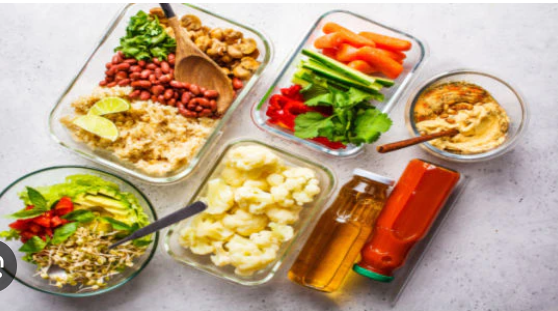How To Do Meal Prep
Meal prep is preparing food ahead of time to make weeknight dinners easier. This can include cooking entire meals or just portioning out ingredients that you will cook later on in the week. Meal prep can also reduce food waste, since one-third of the foods Americans buy end up going bad. Start by focusing on foods that require the longest amount of cooking time, like protein, whole grains, and roasted vegetables.
1. Make A Menu
Meal prep is a way of planning ahead and cooking meals to be eaten on busy days. It can mean making a week’s worth of dinners, preparing healthy snacks or batch-cooking a bunch of ready-to-eat meals for the freezer. There’s no one-size-fits-all approach to meal prep; it depends on your goals and schedule. Some people cook complete meals to reheat for dinner on busy nights, while others batch-cook ingredients that can be used for multiple meals (like doubling a recipe and freezing the extras).
Whatever your method, make sure it’s balanced with lean protein, whole grains and veggies. This will keep you feeling energized and help prevent food waste.
2. Pick A Day
Having meals made ahead of time can reduce your temptation to reach for premade meals full of salt and other unhealthy additives. Plus, you can eat more whole foods that help you meet your health goals. To make meal prep as efficient as possible, it’s a good idea to choose one day of the week that you plan on cooking everything for the week. Sundays are popular, but it’s a good idea to pick a day that works well with your schedule and lifestyle. You can use a meal prep app to keep your plans organized and curate recipes and grocery lists. Or you can just write down your menu on a piece of paper and go shopping.
3. Pick A Recipe
It’s important to have a variety of recipes that you love. It will help keep you interested in meal prep and prevent boredom. Pick a recipe for each day of the week, and try to include a mix of proteins, veggies, carbohydrates, and fats. Choose recipes that can be eaten hot or cold, and ones that can be prepared in advance and stored in the fridge.
Some recipes can be frozen too, depending on how they are prepared. This will make it even easier to get started with meal prepping. Examples of great meal prep recipes include protein-packed salad jars, chicken wraps, and easy rice or pasta dishes.
4. Prep The Food
Meal prep means preparing or cooking meals or meal components ahead of time to make healthy eating easier on busy days. It can include full meals that are cooked and then refrigerated to reheat at mealtimes, or just food ingredients you can portion out ahead of time like vegetables, chicken and salad dressing. Some people choose to prepare a full week of meals at once, but it can also be as simple as prepping a single recipe one day a week. The idea is to find a method that works for your individual schedule and lifestyle and then stick with it! The more you practice, the easier it will be.
5. Cook The Food
Meal prep allows you to control portion sizes and focus on healthy recipes, reducing the risk of lapses in motivation when ordering takeout might be easier. It also helps you save money and reduce food waste. As you cook each meal, look for opportunities to batch tasks — chop vegetables once and use them in multiple dishes, make vinaigrettes or sauces once and use them throughout the week. This helps decrease your time spent in the kitchen and cuts down on the number of times you wash your cutting board or dirty utensils. Some recipes can be frozen, allowing you to meal prep for several days at a time.
6. Store The Food
When it comes to meal prep, it’s important that you know how to properly store your food. This will help ensure that your meals stay fresh and safe to eat for the entire week. For fridge storage, keep foods in airtight containers and use a First-In, First-Out (FIFO) system to prevent food waste. This means that the oldest meal should be used first, so that your newer meals stay fresher longer.
Freezer-friendly meals can last up to a year when properly stored. To extend the life of your freezer meals, make sure that you seal your food tightly in airtight containers and freeze it in single-serving portions.
Conclusion:
In summary, mastering the art of meal prep is simple and rewarding. By following these steps, including planning your meals, shopping smartly, prepping in batches, and storing properly, you can transform your eating habits and streamline your daily routine, making healthy eating a breeze.
FAQs:
Can I meal prep for the entire week?
Yes, you can meal prep for the entire week. However, it’s essential to consider the shelf life of ingredients and properly store perishable items to ensure freshness and food safety throughout the week.
Is it necessary to cook all my meals during meal prep?
Not necessarily. While cooking all your meals in advance is an option, meal prep can also involve prepping ingredients, such as washing and chopping vegetables, marinating meats, or portioning out snacks. Partial meal prep can still save you time and simplify your cooking during the week.
